Strength and Conditioning for Sport
Strength and conditioning in sport is a deliberate practice focusing on a number of key human performance attributes including, speed, agility, endurance, strength, power, stability and flexibility.
The ongoing development of these traits requires comprehensive planning, monitoring, and management in order to achieve improved performance by athletes—ultimately in their major competitions. The ‘planning’, ‘monitoring’ and ‘management’ processes also maintain a strong focus on injury prevention, and post-injury rehabilitation.
A strength and conditioning coach's role is to work in conjunction with the sports coach and athletes to design specific programs that will address the particular needs of an individual athlete, team, or sport. Ideally this practice will also be undertaken in collaboration with other high performance service provider disciplines.
Reviewed by: Australasian Sport Information Network
Last updated: 01 January 2019
Content disclaimer: See Clearinghouse for Sport disclaimer


